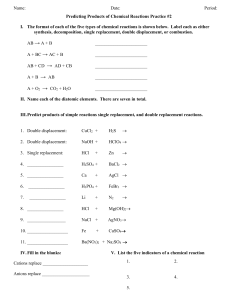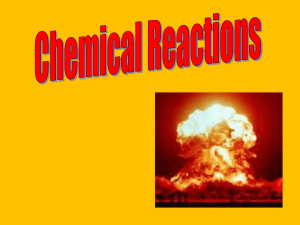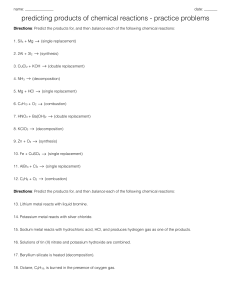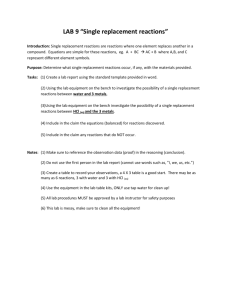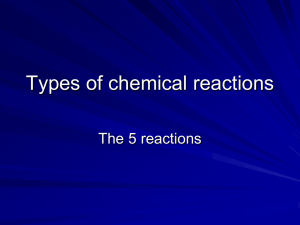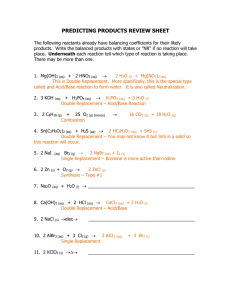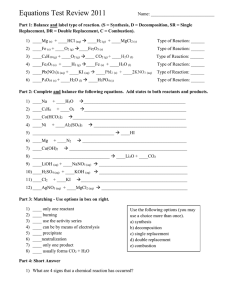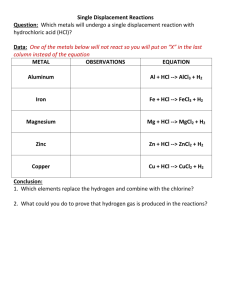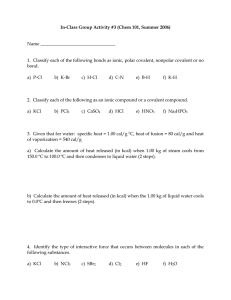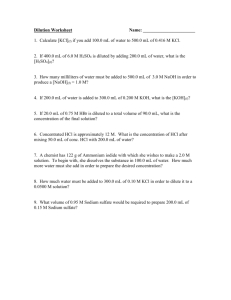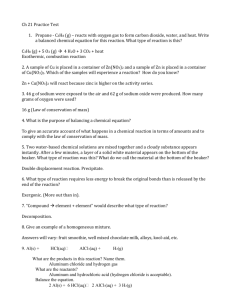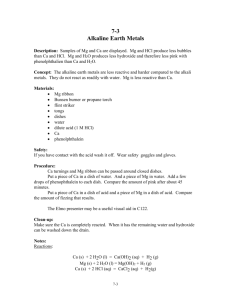Classifying Reactions ppt
advertisement
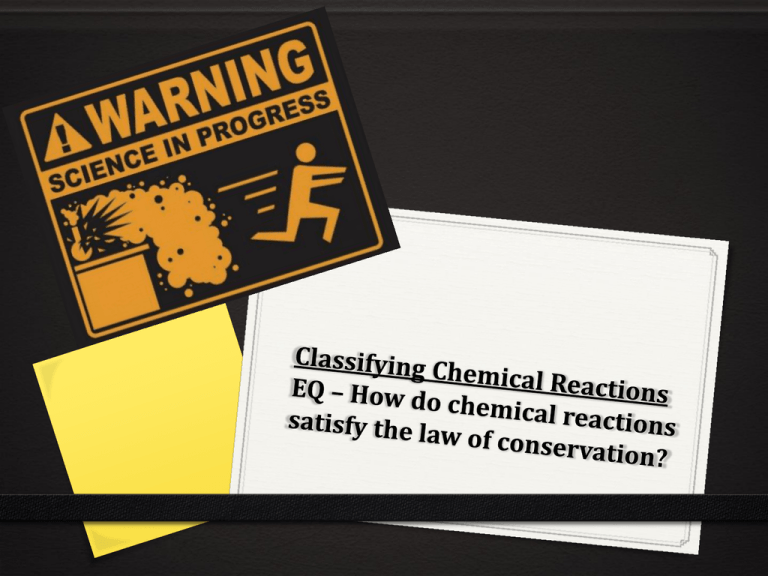
Synthesis Reactions Two or more elements or compounds combine to make a more complex substance A + B AB H2 + O2 H2O2 Decomposition Reactions Compounds break down into simpler substances AB A + B 2H2O H2 + O2 Single Replacement Reaction Occurs when one element replaces another one in a compound Also called Single displacement reaction AB + C AC + B Fe+ HCl FeCl + H Double Replacement Reaction Occurs when different atoms in two different compounds trade places Also called double displacement reaction AB + CD AD + CB KCl + H2O K2O4 + HCl What type of reactions are these? Reaction Type Cu + 2AgN3 CuN2 + 2Ag Single Replacement FeS + HCl FeCl2 + H2S Double Replacement 8 Fe + S8 8 FeS Synthesis 2 KCl → 2 K + Cl2 Decomposition NiCl2 Ni + Cl2 Decomposition Zn + HCl ZnCl + H2 Single Replacement Can you do it all? (BON) 0 1. Iron (III) oxide plus water yields iron (III) hydroxide. 0 2. In a displacement reaction, potassium hydroxide reacts with hydrogen sulfate to produce dihydrogen oxide and what? What has to be done? How will you make certain the Law of Conservation of Mass is followed? What type of reactions are these? Answers: 0 TO DO: Write the equation. Make sure the formulas are correct. Balance the equation. Decide what type of equation it is. 0 Fe2O3 + H2O Fe (OH) 0 BAL: Fe2O3 + 3 H2O 2 Fe (OH)3 0 KOH + H2SO4 -> K2SO4 + HOH 0 BAL: 2KOH + H2SO4 -> K2SO4 + 2H2O
